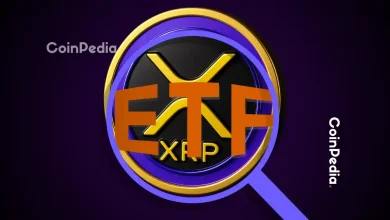
Indonesia’s OJK is enforcing bank-level governance, reshaping exchanges with stricter compliance.
The Digital Rupiah and stablecoins may coexist, but 99% reliance on dollar-backed tokens poses risks.
Tax reforms aim to boost investor confidence — but will traders stay onshore or move offshore?
Indonesia’s crypto ecosystem is rapidly evolving. Pintu has crossed 10 million app downloads, with its derivatives product Pintu Futures recording 170% month-on-month growth.
At Coinfest Asia 2025, the company showcased its vision for mass adoption, while industry leaders raised concerns over heavy reliance on U.S. dollar–backed stablecoins and the urgent need to strengthen the role of the Indonesian rupiah in the digital economy.
To better understand the implications of this transformation, Coinpedia spoke exclusively with Alex Chandra, Public Policy & Government Relations Strategist, who brings deep expertise in tech regulation, data privacy, and the digital economy.
Indonesia Crypto Regulation: OJK Oversight and Compliance Challenges
With oversight shifting from BAPPEBTI to OJK, Indonesian exchanges are facing a tougher compliance regime. Executives must now pass fit-and-proper tests and are held accountable for the effectiveness of internal controls.
Exchanges are also expected to demonstrate bank-level governance, from segregated client funds to strong cybersecurity systems. Many platforms are investing in AI-driven monitoring tools and expanding compliance teams to meet OJK’s higher standards.
“The main challenge is governance and compliance. Expectations are deeper, more frequent, and far more intrusive,” said Alex Chandra, Public Policy & Government Relations Strategist.
CFX Exchange Indonesia: Centralization or Market Stability?
The launch of the Crypto Futures Exchange (CFX) has been viewed both as a safeguard and a centralization risk. By centralizing trading, clearing, and custody, it is designed to safeguard investors, promote transparency, and strengthen systemic trust. Still, experts stress that regulatory sandboxes and tiered frameworks must be allowed so innovation isn’t stifled.
“I view CFX as a vital piece of market infrastructure, much like a stock exchange,” Chandra explained.
Digital Rupiah vs Stablecoins: Can They Coexist in Indonesia?
As Bank Indonesia develops the Digital Rupiah, questions arise about its impact on stablecoins. Chandra sees them as complementary rather than competing.
“The Digital Rupiah is designed for payment settlement, monetary policy, and stability. Stablecoins, meanwhile, power trading, liquidity, and DeFi. With interoperability and clear standards, they can coexist and even complement each other,” he said.
Industry leaders share the urgency of addressing reliance on dollar-backed tokens. Nathanael Christian, CEO of IDRX, warned that over 99% of Indonesian crypto investors use dollar-backed stablecoins, effectively channeling rupiah into U.S. Treasuries. Similarly, Andrew Hidayat of COIN stressed that recognition of stablecoins as legal tender could open the door for seamless cross-border payments.
Indonesia Crypto Tax Reform and Investor Confidence
Indonesia’s new tax regime, eliminating VAT and introducing a 0.21% final income tax, marks a pivotal reform. The simplified system creates greater certainty for investors and exchanges. However, if the rate is seen as high compared to global hubs, there’s a risk traders may shift offshore.
“This reform strikes at the balance of competitiveness versus compliance. Done right, it should deepen liquidity and strengthen onshore exchanges,” Chandra noted.
AML, KYC, and Crypto Onboarding in Indonesia
OJK’s stricter AML and KYC rules have reshaped onboarding. Exchanges are adopting tiered onboarding models—automated e-KYC for small traders and enhanced due diligence for larger accounts. While compliance costs rise, the move is expected to improve trust and professionalism in the long run.
Indonesia Crypto Adoption: Building a Sustainable Future
Despite stricter regulation, Chandra remains optimistic about Indonesia’s trajectory. Clear rules, taxation reforms, and investor protections can attract institutions and build trust. If applied proportionately, these measures will ensure sustainable adoption without driving users offshore.
Web3 developer Febi Mettasari echoed the sentiment, urging that regulatory support also extend to blockchain builders, so Indonesia doesn’t fall behind in Web3 adoption.
Never Miss a Beat in the Crypto World!
Stay ahead with breaking news, expert analysis, and real-time updates on the latest trends in Bitcoin, altcoins, DeFi, NFTs, and more.
Trust with CoinPedia:
CoinPedia has been delivering accurate and timely cryptocurrency and blockchain updates since 2017. All content is created by our expert panel of analysts and journalists, following strict Editorial Guidelines based on E-E-A-T (Experience, Expertise, Authoritativeness, Trustworthiness). Every article is fact-checked against reputable sources to ensure accuracy, transparency, and reliability. Our review policy guarantees unbiased evaluations when recommending exchanges, platforms, or tools. We strive to provide timely updates about everything crypto & blockchain, right from startups to industry majors.
Investment Disclaimer:
All opinions and insights shared represent the author's own views on current market conditions. Please do your own research before making investment decisions. Neither the writer nor the publication assumes responsibility for your financial choices.
Sponsored and Advertisements:
Sponsored content and affiliate links may appear on our site. Advertisements are marked clearly, and our editorial content remains entirely independent from our ad partners.








